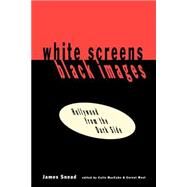White Screens/Black Images: Hollywood From the Dark Side
, by Snead,James- ISBN: 9780415905749 | 0415905745
- Cover: Nonspecific Binding
- Copyright: 4/5/1994
Hollywood's representation of blacks has been consistently misleading, promoting an artificially constructed mythology in place of historical fact. But how, James Snead asks, did black skin on screen develop into a complex code for various types of white supremacist discourse? In these essays, completed shortly before his death in 1989, James Snead offers a thoughtful inquiry into the intricate modes of racial coding in Hollywood cinema from 1915 to 1985. Snead presents three major methods through which the racist ideology within film functions: mythification, in which black images are correlated in a larger sceme of semiotic valuation where the dominant ''I' needs the marginal ''other' in order to function effectively; marking, in which the color black is repeatedly over-determined and redundantly marked, as if to force the viewer to register the image's difference from white; and omission--the repetition of black absence from positions of autonomy and importance. WhiteScreens/Black Imagesoffers an array of film texts, drawn from both classical Hollywood cinema and black independent film culture. Individual chapters analyzeBirth of a Nation,King Kong, Shirley Temple inThe Littlest RebelandThe Little Colonel, Mae West inI'm No Angel, Marlene Dietrich inBlonde Venus, Bette Davis inJezebel, the racism of Disney'sSong of the South, andTaxi Driver. Making skillful use of developments in both structuralist and post-structuralist film theory, Snead's work speaks not only to the centrality of race in Hollywood films, but to its centrality in the formation of modern American culture.







